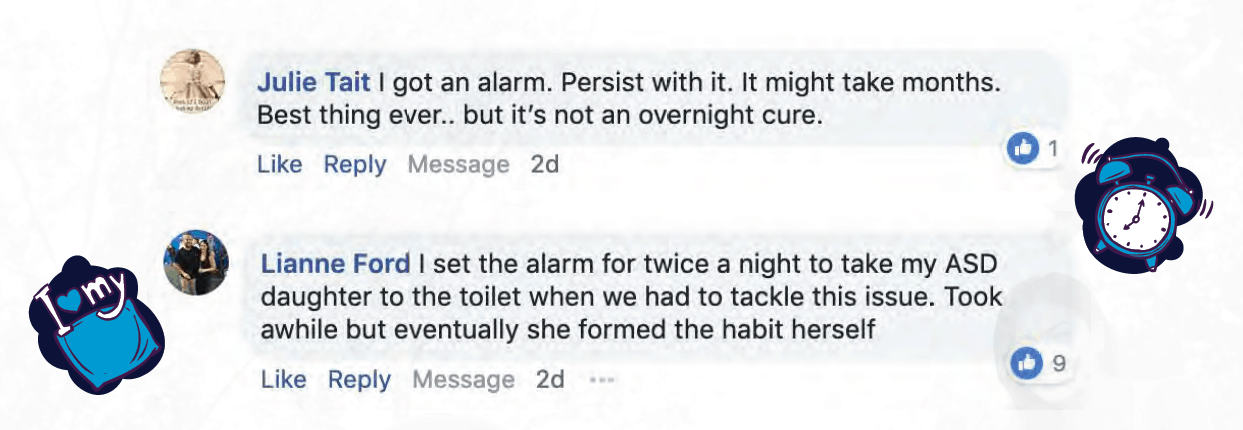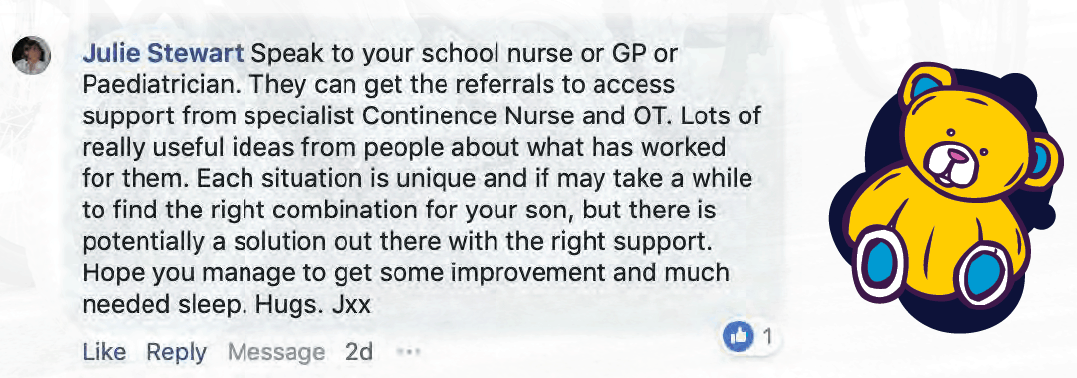Nighttime Toileting/Bedwetting
Nocturnal enuresis is involuntary urination while asleep. This can be very challenging for kids with autism, and their families and carers. Most kids aren’t able to stay dry through the night until they’re 5 or older because their bladders are too small, they lack muscle control, or they sleep too soundly to sense when their bladders are full. The best thing for you and your family to do would be to try to tackle nighttime toileting. However, I am aware that some of you have tried everything available and had no luck. I have put some bedding strategies below to try and make it slightly more manageable.
Over the years I have found that nighttime toileting and sleep issues are often interconnected, so I have put some strategies for sleep below. PLEASE remember that a combination of strategies is often the best way forward!

I recently received this question from a mother: “I have an ASD and intellectual disabled child who is 11 and is still in nappies at night he won’t wake up and is wetting the sheets what is the best way to tackle toileting at night time please. He is a big boy a size of 15yr old even though he is 11 and weighs about 65 kilos” and received some excellent responses from my facebook community..
- Set an alarm for once or twice during the night. When the alarm goes off take your child to the toilet. Although this might take a few months, eventually your child will be able to take themselves to the toilet.

- Stop drinking 2 hours before bedtime and go to the toilet RIGHT before bed time.
Bowel movements can impact on night continence, as a full bowel can put pressure on the bladder. If possible, try and get your child to empty their bowel before sleeping.
Use a pull up with a booster tab inside for more absorbency.

- Occupational Therapists can provide more suggestions and personalised strategies for sensory issues.
Incontinence nurses. Before visiting it is beneficial if you track each night/day of your child’s toileting schedule. An app called ‘My Dryness Tracker’ can be very helpful.
NDIS funding can sometimes be useful for an assessment on incontinence.

- Minirin melts on the tongue can reduce the overactive bladder.
Minirin spray.
Desmopressin spray.
- Brolly sheets can be put over sheets. They have a comfortable cotton top but are waterproof underneath so do not soak the mattress. Although these will not reduce the amount of wet beds they are faster to clean up.
Waterproof doona covers.
Mattress protectors.
Cotinence pads.




 Sorry we no longer ship items outside Australia. Please consider the digital versions of Sue’s Books –
Sorry we no longer ship items outside Australia. Please consider the digital versions of Sue’s Books – 